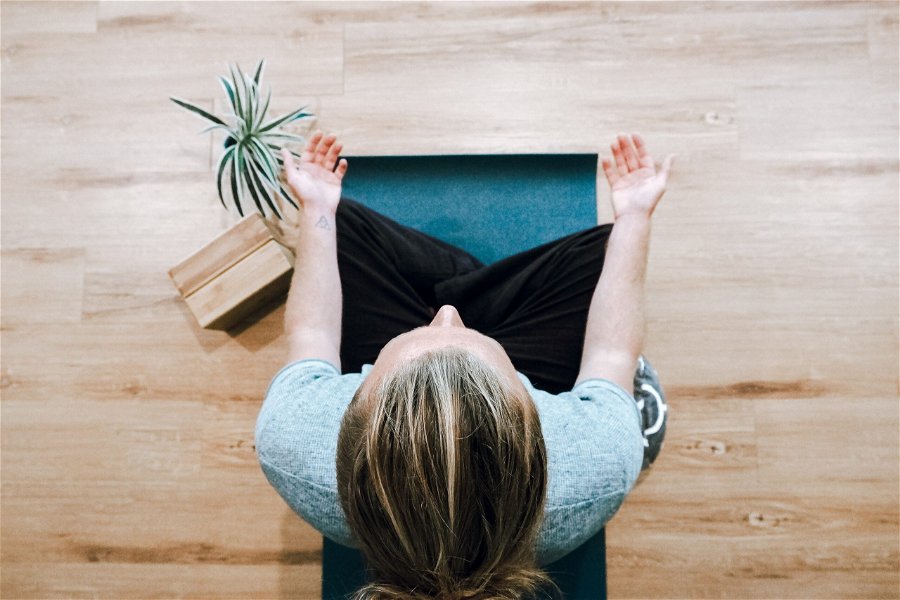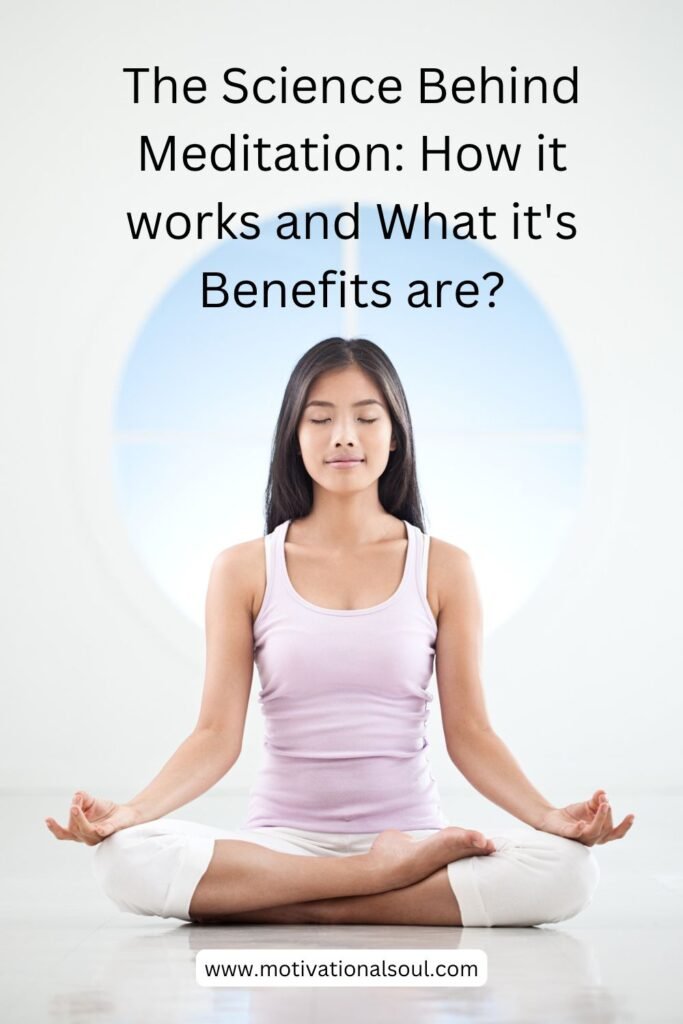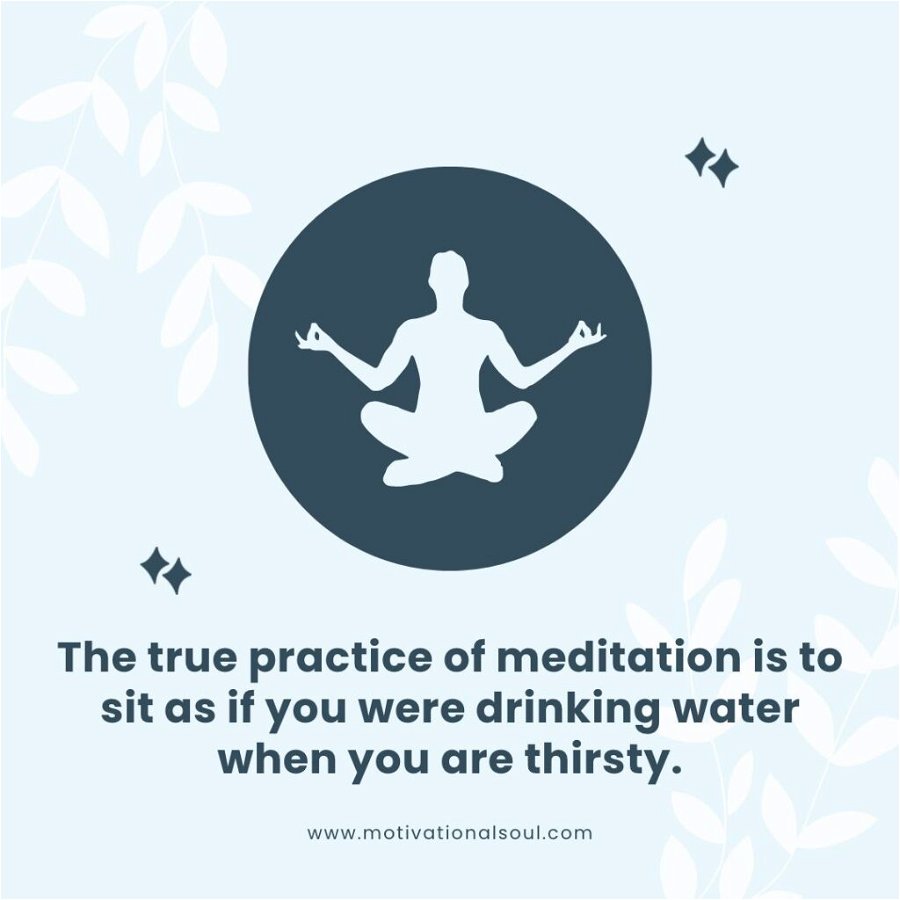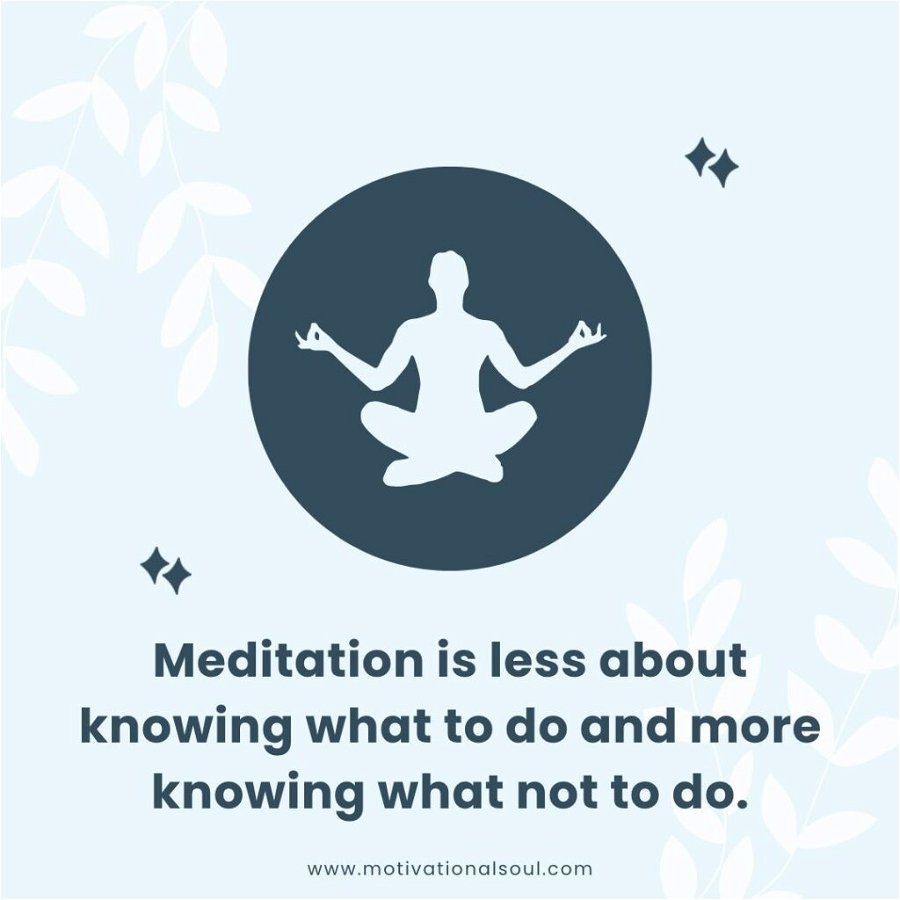Meditation Guidance

The Science Behind Meditation: How it works and What it’s Benefits are?

The word “meditation” can be misleading because it suggests that the process is passive. In reality, meditation is an active process of watching your thoughts go by without getting caught up in them. It is the process of training your mind to focus on the present moment, instead of being lost in the past or future. Meditation is not about emptying your mind, but rather about observing your thoughts without judgment.
The goal is to learn to become an impartial witness to your thoughts and feelings. With practice, you will develop a greater sense of detachment from your thoughts, and they will have less power over you. As a result, you will be better able to control your emotions and reactions to stress.
Meditation has been shown to have many benefits, including stress relief, increased self-awareness, and reduced anxiety and depression. Some studies show that regular meditation can change parts of the brain associated with stress and emotional regulation. Meditative practices have been around for centuries as a way to find balance within oneself and with one’s surroundings.
Meditation can be done in many different ways, but it usually involves sitting with your back straight and focusing on your breathing. It’s important to find a quiet place to meditate and to keep yourself from being distracted by outside noises. It’s important to meditate for five minutes every morning. It’s important to find a place that is a good distance from distractions and noise.
Let’s explore the basics of meditation:
1. Find a quiet comfortable personal space.
Make sure you will not be interrupted for at least five minutes. Find a quiet comfortable personal space. Make sure you will not be interrupted for at least five minutes. Get into a comfortable position. You could close your eyes or place your hands on your knees. Take three long and deep breaths, in through the nose, out through the mouth. Continue this five times or until you feel calm

2. Sit in a comfortable position.
Sitting in a comfortable position with your spine straight is important for maintaining good posture and preventing pain. When you slouch, your muscles have to work harder to support your body, which can lead to fatigue and muscle soreness.
Additionally, poor posture can put a strain on your spine, leading to back pain. Maintaining a straight spine will help you to avoid these problems and keep your body healthy.

3. Take a few deep breaths and allow your body to relax.
As you take a deep breath in through your nose and let it out slowly through your mouth, try to focus solely on the present moment. This is a powerful technique that can help you to become more mindful, so you can live in the present instead of worrying about the future or regretting the past.
4. Try to clear your mind of all thoughts.
If a thought comes into your head, let it go and focus on your breath again. It is important to be able to calm your thoughts to focus on something. This can be done by trying to clear your mind of all thoughts. If a thought comes into your head, let it go and focus on your breath again. Different methods are used for meditation, but the most common one is mindfulness meditation. It is a form of mental training which helps you become more aware of what is happening in the present moment.

5. Continue breathing deeply and evenly for five minutes.
This is not a breathing exercise, but rather a calming technique. It can be used to reduce stress and anxiety when you are feeling stressed and anxious. The technique is very simple and easy to do. You can do it anywhere, anytime, and without anyone noticing that you are doing it. You just need to take five deep breaths in through your nose and exhale them out through your mouth for five minutes.
After you finish meditating, you can open your eyes and begin your day. You may feel more relaxed and less stressed. If you practice meditation regularly, you may find that it becomes easier to focus and think more clearly. You may also find yourself more patient and better able to handle difficult situations.
Meditation can be useful in reducing anxiety. Let’s explore a few benefits :
1. Meditation supports a healthy lifestyle.
Meditation is a simple, yet powerful, the tool that can help to reduce stress and support a healthy lifestyle. By taking a few minutes each day to focus on your breath and clear your mind, you can help to reduce the number of stress hormones in your body. In addition, meditation has been shown to improve sleep quality, increase relaxation, and boost immune function. All of these benefits can help to promote a healthy lifestyle.

2. Reducing stress through meditation can lead to better sleep.
Meditation is an effective way to reduce stress. When you meditate, you focus your attention and bring your mind to the present moment. This helps to clear your mind of racing thoughts, worries, and concerns. As a result, you’re better able to relax and fall asleep. In addition, meditation can help to improve your concentration. By regularly practising meditation, you train your mind to become more focused and less easily distracted.
As a result, you’re better able to stay on task and accomplish your goals. If you’re looking for a way to reduce stress and improve your sleep and concentration, meditation may be the answer.
3. Meditation supports your immune system.
Meditation has many well-documented benefits for overall health and wellness, including reducing stress levels, improving sleep quality, and promoting positive emotions. Now, new research suggests that meditation may also support the immune system by decreasing the production of cortisol, the “stress hormone.” Cortisol plays an important role in the body’s stress response, but when levels are chronically elevated, it can hurt health.
In addition to promoting inflammation and Weakening the immune system, high levels of cortisol have been linked to a variety of health problems, including anxiety, depression, and heart disease. Therefore, by reducing the production of cortisol, meditation may help to keep the immune system functioning optimally.
4. Meditation can increase feelings of well-being and calmness.
Meditation is a practice that has been used for centuries to promote feelings of well-being and calmness. There are many different ways to meditate, but the basic principle is to focus on the breath and allow thoughts to come and go without getting caught up in them. The key is to find a comfortable position that you can maintain for at least a few minutes. Research has shown that meditation can reduce stress, improve sleep quality, and boost mood.
5. Meditation can help to reduce anxiety.
Everyone experiences anxiety at some point in their lives, but when it becomes chronic, it can hurt our everyday routine. Meditation is an effective way to reduce anxiety and promote feelings of calmness and well-being. Research has shown that meditation can be as effective as medication for treating anxiety.
6. Meditation can improve your focus and concentration.
When you meditate, you train your mind to become more aware of the present moment and less easily distracted. As a result, you’re better able to stay on task and accomplish your goals. Additionally, meditation can help to improve your attention span. In one study, participants who meditated for eight weeks reported a significant increase in their ability to focus and concentrate.
Conclusion
Meditation has a variety of benefits that can improve your mental and physical health. It is a simple and easy way to reduce stress and anxiety. Meditation can be done anywhere, at any time. All you need is a quiet place to sit or lie down. Meditation has been shown to reduce stress, lower blood pressure, improve sleep, and boost self-esteem. It can also increase focus and concentration, and promote creativity and calmness. In addition, meditation can help to connect you with your inner thoughts and feelings, giving you a greater sense of peace and well-being.
If you’re new to meditation, there are many resources available to help you get started. There are also many different types of meditation, so you can find one that fits your needs and preferences. Thanks for reading!




Recent Comments